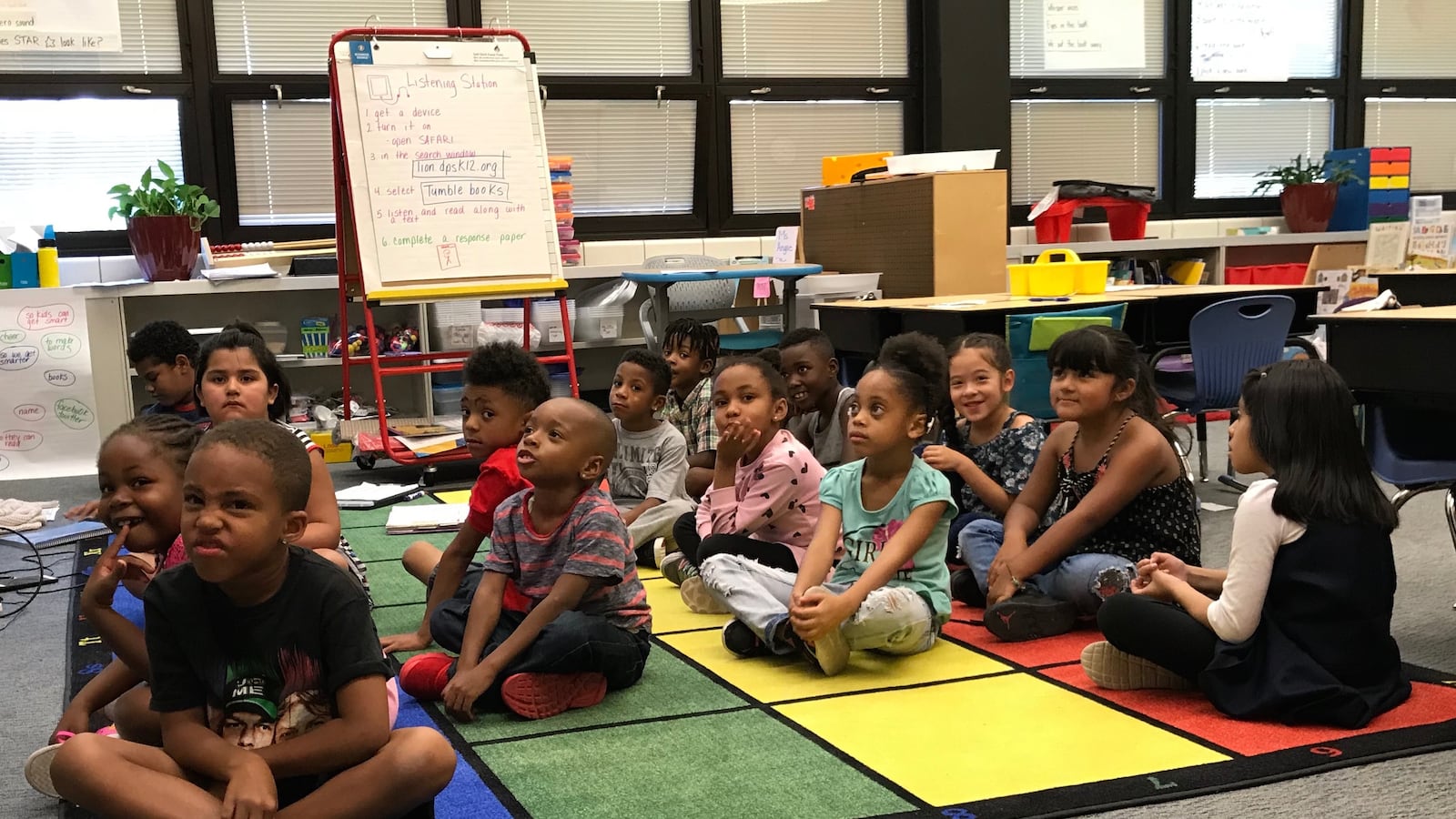A $1 million donation from a Denver couple will allow the school district to train all teachers in how to understand and respond to the trauma students bring to school.
It’s a pertinent topic given that the past two weeks have seen Denver Public Schools rocked by the suicide of a 9-year-old boy who was a fourth-grader at a Denver elementary school, and the unrelated, non-fatal shooting of a teenage boy outside of his middle school.
“Traditionally, in our culture, we’ve often seen trauma and the response has been, ‘Keep it inside. Don’t talk about it,’” Superintendent Tom Boasberg said at an event Thursday to announce the $1 million gift. “That’s not the best way to deal with trauma.”
The donation is not tied to the recent tragedies, but district officials said it could prevent future ones. The training teachers and other school staff receive will help them understand how trauma affects brain development, and how to build the skills and confidence to talk to students about the sadness or anger they might feel after experiencing it at home or at school.
What looks like bad behavior can have its roots in difficult experiences outside the classroom, and teachers need training to learn how to better respond. The 92,600-student district has taken steps to reduce punitive discipline, especially for its youngest learners.
In June 2017, the Denver school board revised its discipline policy to limit suspensions and expulsions of students in preschool through third grade. As a result, no young students were expelled in the 2017-18 school year, Boasberg said. The number of suspensions among that age group decreased by two-thirds from 414 in 2016-17 to 182 in 2017-18, and the length of the suspensions that were given was dramatically shortened, Boasberg said.
Hallett Academy, the northeast Denver elementary school where the event was held, saw an even bigger drop from 34 suspensions among its younger students to absolutely none last year.
Standing behind a podium in the school’s colorful, second-floor library, Principal Dominique Jefferson spoke about the culture shift that allowed the school to get there.
“We give children the grace to make mistakes and try again,” she said.
When those mistakes happen, Jefferson said, “we love children back into learning. We restore them back to a place where they feel safe and included and seen and heard.”
Hallett Academy uses “restorative practices,” a type of discipline that focuses on repairing harm rather than doling out punishment. The method is codified in the district’s discipline policy, and 40 percent of district schools last year had staff dedicated to it. Hallett, for example, has two restorative practices coordinators who Jefferson said have been key to its success.
“It is our responsibility to teach the behavior we want to see,” she said.
The district has also increased the number of social workers and psychologists working in schools. It reorganized its budget this year to ensure that every district-run school – even the smallest elementaries – have at least one full-time mental health worker.
Those moves are all part of the district’s effort to become “trauma-informed.” The school board passed a resolution in October directing the district to come up with a plan to best meet the needs of students who’ve experienced trauma, and offer training and coaching to schools.
The $1 million donation is the first dedicated to this work. It comes from Jim and Janice Campbell, who moved to Denver more than two decades ago after selling their business and whose three grandchildren are graduates of Denver’s East High School.
The Campbells had been giving what they called routine, nominal donations to the district for years, but decided they wanted to make a major investment. They were thinking about targeting vocational education until officials told them about the trauma training.
Jim Campbell said he and his wife knew nothing about it, but were quickly convinced of the need. “We feel very blessed to be a small part of this,” he said.
The donation is paying for four new district staff members, including three who specialize in trauma-informed practices. The training, which those staff members will coordinate, began to be offered last year and will be expanded to all of Denver’s more than 200 schools. That includes district-run and charter schools, which are publicly funded but independently run.
The goal, Boasberg said, is that every single teacher receive it.
“We recognize we’ve made a strong investment in increasing the mental health supports in our schools,” he said. “At the same time, we recognize that … it needs to go deeper and further.”


